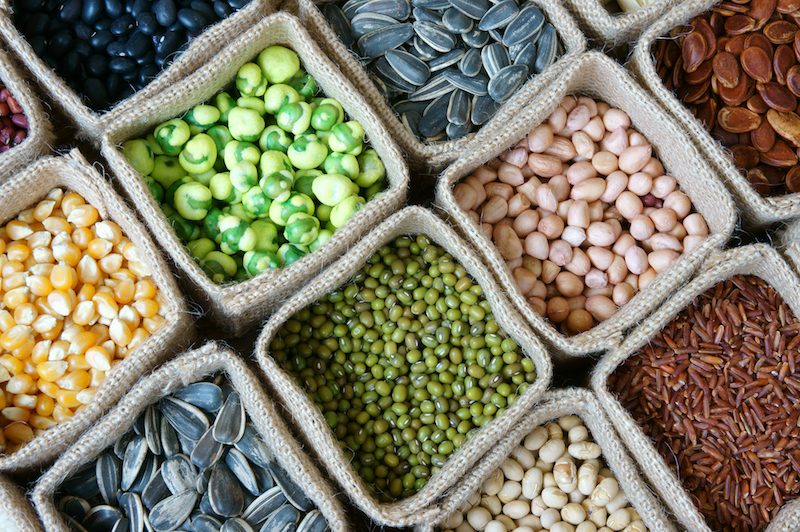
Addiction recovery can be an arduous process. Many people find it difficult, and relapse is very common, especially if they neglect to seek professional treatment. Relapse can make it even more difficult to get clean as addicted individuals become discouraged and dread going through the detox process again. For some, it can feel like true recovery is impossible.
More and more addiction experts are coming to the conclusion that addiction is caused by unhappiness more than anything. Stress, life dissatisfaction, poverty, and ill health all seem to correspond with addiction disorders. On the other hand, addicted persons and laboratory test animals put into nurturing environments with everything they need seem to naturally stop using their drug of choice. Addiction itself is considered to be a mental illness or chronic brain disease – either way, it’s a dysfunction of one’s health, and there are many different ways to treat that.
Overall good health is important no matter what, and good nutrition is a key part of that. If one part of yourself is ill, working on another aspect of your health can bring you back into balance. Good nutrition improves one’s mood, increases energy, and helps to flush toxins out of the system. It may be tempting to indulge in treats while recovering from an addiction, but this can ultimately make you feel worse and make it more tempting to relapse. When you feel good, it’s easier to stay sober.
Physical Effects of Drugs and Alcohol
The first step to addiction recovery is generally detox – getting all of the intoxicant out of one’s system. However, many people forget to take into account the effects that drug and alcohol abuse has on the body and brain over time. Even after withdrawal symptoms subside, the body needs time to heal. The liver may need to restore itself after building up fatty deposits and sustaining tissue damage. With certain drugs, the brain may take years to recover completely. Drugs like opioids slow digestion, causing chronic constipation that can lead to damage to the intestines. Plus, elements of the drug will build up in the fatty tissues of the body and can linger there for a long time.
Drugs and alcohol also tend to push out the essential vitamins and minerals that are present in a person’s body. Significant deficiencies in these nutrients can cause a wide range of severe health problems and generally make a person feel miserable. That feeling of physical and mental ill health can lead a person to take drugs to feel better.
In addition to direct effects, abusing a substance often leads to changes to one’s eating habits. In the case of alcohol, the increase in sugar intake can cause weight gain and even diabetes. Those who abuse stimulants or heroin may lose an unhealthy amount of weight due to the fact that these drugs suppress the appetite. Going off these drugs can then trigger an eating binge as appetite returns. This imbalance of nutrition can make the physical effects of the intoxicant even worse.
At the same time, the eating habits of addicted persons tend to be generally worse than the rest of the population. This is because their lives end up revolving around the drug and everything else takes a backseat. There’s also somewhat of a link between drug abuse and poverty, and drug or alcohol abuse can be very expensive. It can therefore be difficult for addicted persons to afford the food needed to get good nutrition. They may resort to purchasing cheaper, processed, high-calorie foods rather than organic fruits and vegetables so they can have more money for drugs and alcohol. In addition, they may not have the time or energy for cooking.
Food and the Body
The right food can repair the body, flushing out old toxins and promoting new cell growth.
Many people have improved their lives through the study of food. Essential functions like digestion begin to work properly again, and cognitive functioning improves. Mood also improves substantially when you’re eating the right foods.
Each individual person has unique nutrition needs. Different drugs and different situations, as well as allergies, religious dietary restrictions, and preferences, make for different levels of nutritional deficits in each type of nutrient. One of the best things a recovering person can do if the nutritional route is chosen is get the blood tests necessary to determine where they are lacking and then consult a nutrition specialist. A nutritionist can guide people in recovery through exactly what they need to get their health back on track and set up a dietary plan to follow.

Proper nutrition has been shown to reduce levels of stress as well as anxiety and depression, all of which can fuel cravings and reduce motivation to stay on track. One study found that of the individuals given either a placebo or folic acid (vitamin B) to treat depression, 61 percent improved on the placebo while 93 percent improved on the folic acid. A good diet helps to restore the proper balance of neurotransmitters in the brain, such as serotonin and dopamine, that are artificially altered by intoxicants. A marked improvement in eating habits can even help to treat other mental illnesses, which is essential for the treatment of co-occurring addiction disorders. Mental illness and addiction are closely linked.
Good eating habits can also improve sleep. Sleep disturbances are very common in addicted persons due to the fact that the vast majority of intoxicants have been shown to interfere with sleep. Lack of a healthy sleep pattern can affect every other part of a person’s health. It contributes to weight fluctuations, increases stress and anxiety, affects cognitive processes, and can cause depression. People are often amazed at how much better they feel once finally getting a good night’s rest on a regular basis.
Which Foods to Eat?
Though each recovering individual will have different dietary needs, there are some key types of food that everyone can stick to in order to improve physical and psychological health. These include:
- Whole foods: This includes any food that is provided in its whole original form, not processed in any way. Oftentimes, skins, crusts, and peels can be consumed for maximum nutrients.
- Whole grains: Eat plenty of complex carbohydrates, including oatmeal and brown rice. This helps maintain blood insulin levels.
- Fiber: This is essential to getting the digestive system back on track. Seeds, bran, and other fiber-rich foods help to move food through the intestines and process carbohydrates.
- Protein: High-protein diets provide plenty of energy and amino acids. Focus on fish and organic chicken, or raw nuts, eggs, legumes, brown rice, and seeds if meat is not an option.
- Fats: There are good fats that are essential to a balanced diet. Flax seed oil and fish oil contain omega-3 fatty acids, and most nuts also contain healthy fats.
- Fruits and vegetables: Most people do not get enough fruits and vegetables in their diets. If you can, stick to locally grown, raw produce that is in season, and make sure to eat a variety.
It’s also important to eat often enough. At least three meals per day with light snacks in between keep a steady stream of nutrients going through the body, maintaining energy throughout the day. Keeping blood sugar levels steady helps to maintain a consistent mood. Hunger can also trigger cravings for drugs or alcohol.
It may be difficult at first to give up some of these, as they can also be addictive. About half of all caffeine users experience withdrawal symptoms when they cease intake. However, it won’t be long before you begin to feel significantly better, and it becomes much easier to eat healthy foods and avoid certain foods.
Recovering from an addiction often involves learning to take care of yourself again. One of the most basic forms of self-care is to feed yourself well. Doing so in a healthy way is substantially rewarding, and it directly reduces symptoms that can lead a person back into substance abuse. It’s a practice of self-love and support that tends to increase life satisfaction.

